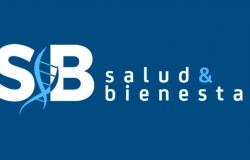
The potential money laundering and terrorist financing risk of asset regularization or “laundering” regimes varies greatly depending on their design. The proposal by the Milei Government in the Base Law was harshly questioned by the American Association of Jurists (AAJ), which at the beginning of the month presented a document to the Financial Action Task Force (FATF), which they invited to make pertinent observations. The same steps will continue before organizations such as the IMF, the World Trade Organization and the World Bank. In dialogue with Page 12Claudia Rocca, president of the AAJ Argentina, analyzed the most important points of the document and other criticisms of State policy.
“Laundering, as presented, contradicts all FATF recommendations regarding voluntary tax compliance programs,” maintains the president of the Argentine branch of the AAJ. The association presented to the international organization in charge of monitoring financial crimes linked to terrorism a document that shows the successive violations of the “best practices” suggested by the FATF regarding “tax amnesties.”
“The whitewashing of the ruling party could encourage transformations in the country that they end up turning it into a narco-state. We know very well the experiences from Colombia and Mexicowhere non-liberal governments recently won the elections, so that criminal groups could well choose Argentina, a country with more lax conditions, as their destination,” warns Rocca.
The document submitted to the FATF comes at a time when Argentina is awaiting the result of the evaluation that the organization carried out last year. “The review process has ended, but the report has not yet been issued,” clarifies Rocca, so it could incorporate new critical evaluations of the Government. At one extreme, if the FATF were to appreciate strategic deficiencies in the fight against money laundering and financing of terrorism in the country, it could enter a Blacklist that would prohibit their participation in international trade and the taking of loans with organizations, among other consequences. Currently 21 countries make up that list: several African countries, Haiti, Jamaica, Syria and Turkey, among others. In the money laundering proposed by Milei, for example, resident citizens of those countries cannot participate.
The Asset Regularization Regime included in the Base Law exempts from taxes and sanctions all assets below 100,000 dollars and those that exceed that figure but are invested in the country at least until December 2025. If the funds were not reinvested, the rate that would be applied would be 5 percent, 10 or 15 depending on the time of entry. In turn, the foreign exchange obtained does not have a specified destination.
In its report, the AAJ characterizes this regime as “a tax amnesty that favors evaders who, in exchange for declaring their hidden wealth, are exempt from court cases and from paying fines, among other benefits.” They also raised concerns about the Large Investment Incentive Regime (RIGI) “and the fate that the exploitation of strategic national resources may have, in the face of indiscriminate privatization policies and a State that moves away from the scope of regulation,” maintains the document.
The laundering of Milei proposes to “dilute all controls and ease the sanctions” of the money laundering prevention systems, says the president of the AAJ Argentina. Also regarding coordination with other competent national authorities and mutual legal assistance and exchange of information with other nations to mitigate risks, the ruling party’s project is mute.
Only the Central Bank appears as the authority to determine the documents and requirements that it will impose on those who open a Special Asset Regularization Account to deposit the funds. “In this way, the principle of due diligence is violated, which means that the obligated subjects – that is, the financial and banking entities – are prohibited from finding out or checking the origin of the repatriated assets, which is a perfect legal form for impunity,” warns Rocca.
Not violating the principle of due diligence is an explicit recommendation of the FATF. The international organization also recommends that financial institutions must identify the beneficial owner of the account to which assets are transferred, repatriated or deposited within the framework of laundering, but the Argentine case does not provide for “the provision of adequate, precise and “opportune information on the final beneficiary nor the control of the legal entities that may adhere to the regime.”
The subjects reached by the ruling party’s project are residents and non-residents, for their assets located in Argentina or for income obtained from a local source, and it also includes “former residents” who changed their tax residence to jurisdictions with a lower tax burden. Only excludes officials from the last five years and his family.
The complaint that the AAJ presented to the FATF also covers other issues regarding the Government’s policy. “The State gradually abandoned a whole series of policies to prevent money laundering, human trafficking and promote the free carrying of weapons that are counterproductive to guaranteeing the most basic economic, social and cultural rights,” says Rocca.
Specifically, the report warns that “the new justice authorities that annulled the regulations regarding corporate control, especially of Simplified Joint Stock Companies (SAS), which are those constituted by contributions from other companies, which are created in 48 hours almost automatically and without any control over the final beneficiary, corporate composition, etc. Our experience with this type of companies, which we studied after the Macri Government, is that they were frequently used for money laundering and other criminal organizations,” clarifies the president of the AAJ Argentina.





